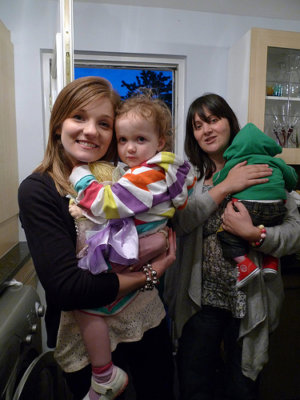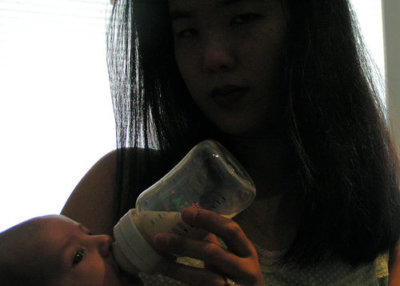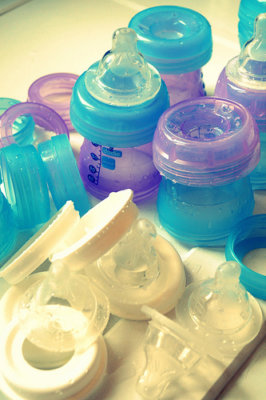A Postnatal Depression Case Study – What is it Really Like?
by Natalie Trice
It’s not uncommon to experience ‘baby blues’ after giving birth. For some women this goes away as quickly as it arrived. For others, it develops into full-blown postnatal depression (PND), a condition that is often hidden but can have a significant impact on you and your family.
NHS figures show postnatal depression affecting one in ten mothers, but this figure only includes those who seek help. Stigma still exists around not fitting the mould of the happy new mum, leaving many to suffer in silence, blaming themselves and worrying that if someone finds out they feel are depressed their child might be taken away.
What it is really like to be a sufferer of postnatal depression? This is Natalie’s story.
My Struggle with Postnatal depression
Having suffered from anxiety in the past due too a high-pressured career, being a candidate for PND shouldn’t have really been a surprise.
But I was so focused on getting things right with the birth of my first son I just didn’t entertain the idea that I wouldn’t be able to cope.
And perhaps I desperately wanted to believe in the image I presented to the outside world of the woman who had it all. The sort who had an amazing wedding, moved out of London to a gorgeous house, had no troubles getting pregnant, and as a freelancer with a supportive husband could start maternity leave when she wanted with no pressure to go back until she was ready.
My son was nearly two weeks overdue. It ended up a quick labour to produce a big baby, and was traumatic for both he and I. But he was a beautiful little boy and there was certainly no issue with bonding, so I told myself everything was perfect.
But if I am honest, from day one I knew something wasn’t quite right.
Once my husband was back at work I felt completely overwhelmed by the responsibility for another life, and became very anxious that I’d do something wrong. I sterilised everything obsessively, I even made visitors use hand gel!
Then there were my endless worries about whether I was getting feeds right, and when the correct time would be to help him make his first new friends. Which would send me into a panic that he might pick up a bug, which would, I told myself, be all my fault.
And the exhaustion! I had never know such tiredness.
I put on my bravest face, or, as a good friend calls it, my “I’m fine” mask.
But I’d see the other women on the high street with their bugaboos and smiles, and I just felt like I was in another world altogether. More and more I’d just sit at home and cry, if I’m honest, wishing for my old life back. I’d leave home less and less, becoming more and more reclusive, some days not even opening the curtains.
I was told more than once to pull myself together, to remember that children are a gift. I knew that. But being reminded of it did nothing. The reality is that being a new mum can be hard; having depression is miserable and when the two collide life becomes a frightening haze.
And oh, the guilt and shame I felt for not being able to snap out of it! I’d beat myself up constantly. I was a senior global PR manager, who had juggled staff and budgets, but when it came to being a mum I couldn’t hack it? I told myself my son deserved better than me.
As the weeks went past I found it harder and harder to keep it all together. One morning, after a night with very little sleep due to my son having colic, I broke down and told my husband he couldn’t go to work that day as I couldn’t cope.
I was lucky; my husband was amazing. An emergency appointment to see our GP was quickly arranged. And while I admit in the back of my mind I thought she would take my child away and lock me up in a mad house, opening up was the best decision I made. The doctor was kind and supportive, her door was open 24/7, and plans were put into place.
I was put on anti-depressants, which I felt a bit nervous about. But I knew in my heart it was the right move for me at the time.

By: zoetnet
The best thing was just to suddenly feel so supported. A local health visitor popped by three times a week and my husband would come home for lunch.
And there was a local postnatal depression support group and I would attend once a week, which was both helpful and inspiring. I would sit in a room of people who were experiencing what I was experiencing, just listening and talking. We were all in the same boat and no one made me feel like I was being self indulgent or selfish.
The realisation that I wasn’t a bad, mad mother, just ill, definitely took some of the pressure away.
Bit by bit, day by day, I started to relax and feel the anxiety lifting. Instead of just sitting by my baby’s cot while he slept making sure he was breathing, I was having a power nap myself. Out came my pre-pregnancy clothes, even some make-up. I would open the curtains and get out of the house each day, just to the corner shop to start with. A big step for me was starting to pop to the local Costa without panicking he’d pick up germs from other customers.
After about six weeks I felt as if I was back on track and enjoying my new life as a mummy.
Of course it’s not cut and dried. I still sometimes have panicky thoughts. Even writing this postnatal depression case study I feel a bit pathetic that I couldn’t cope with a tiny baby and that I failed him. But now I know those are just thoughts, not the truth. I can see nowadays that I was far too hard on myself back then. I wanted to the perfect mum and wife with a well-behaved baby who slept throw the night.
Eight years on and I have two very happy little boys who I adore and life is good.
If I could go back I would be easier on myself. I would tell myself to relax and trust my own instincts.
And my advice if you are a partner, relative or friend of a mum who you think may have postnatal depression? Reassure her that it’s normal to feel this way. Getting her to relax and open up is really important. And often it is the simple things that can really help such as:
- Help her to organise her time, and work out what needs doing now, and what can wait – this is key as many women feel like they have to do it all now and be perfect
- Cook dinner for her or make some meals for the freezer
- Encourage her to rest as much as possible
- Tell her what a great mum she is and how well she is doing
- Offer to look after the baby so she can have a bath, go out for a manicure or simply get some rest
- In the early days help her to set boundaries over too many visitors, asking well-meaning people to call or text rather than turning up on the doorstep
- Listen to her and let her cry if she needs to
- Let her know you are there for her, no matter what
- Give her space so she can take care of herself and process how she is feeling and what help she needs
- Get her to talk to her health visitor or GP and seek professional help if it is all too much
It is vital that new mums are supported and feel like they can open up and talk honestly about their feelings and emotions without fear of judgment if things aren’t quite going to plan. And if we as a society view PND as an illness, not a reflection of the ability to be a good mother, it would make a huge difference.

Natalie Trice is a freelance writer and blogger who lives in Buckinghamshire with her husband, two sons, cat and dog. She writes a regular feature column for Families Magazine.
Would you like to share you experience of postnatal depression? Or have a question you are burning to ask about PND? Do so below, we love hearing from you.






